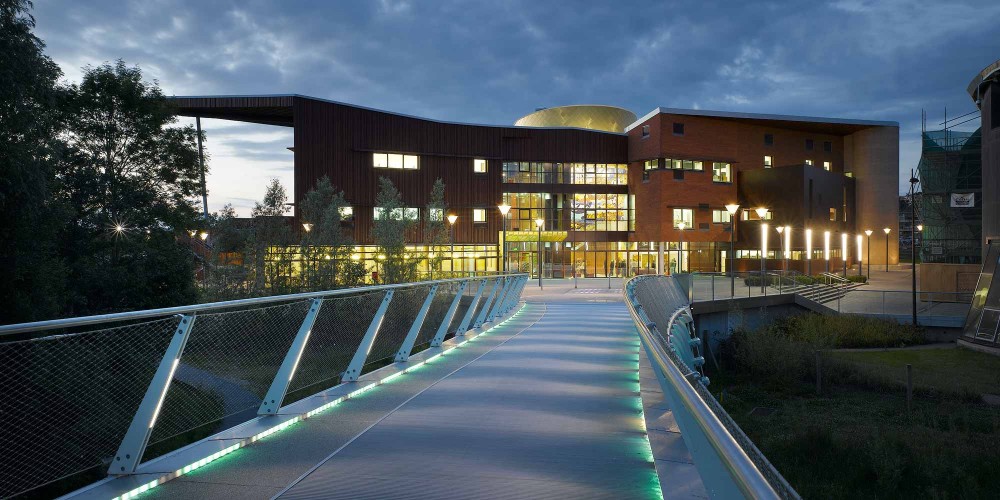
Find information on how to make a Protected Disclosure under the external procedures in place in the HEA.

EPI*STEM, the national centre for STEM Education based at the University of Limerick (UL)
Improving mathematics proficiency among Irish school children has long been a topic of national debate. The research team at EPI*STEM, the national centre for STEM Education based at the University of Limerick play a key role in highlighting the subject’s challenges and providing solutions. EPI*STEM’s research uncovered a fundamental barrier to mathematical attainment. Their 2009 study[1], reported that almost half (48%) of those teaching mathematics at post-primary level were not adequately qualified to do so: in other words, they were teaching out-of-field (OOF). These results led to EPI*STEM launching a dedicated upskilling programme, the Professional Diploma in Mathematics Teaching (PDMT), in 2012. The programme is funded by the Department of Education and Skills (DES), recognised by the Teaching Council, and delivered through a national network of 14 teacher education partners. To date, 1068 teachers have graduated the programme.
[1] Ní Ríordáin, M., & Hannigan, A. (2009). Out-of-field teaching in post-primary mathematics education: An analysis of the Irish context. Limerick, Ireland: NCE-MSTL. Retrieved from http://epistem.ie/wp-content/uploads/2015/04/Out-of-field-teaching-in-post-primary-Maths-Education.pdf
Through their focus on STEM research and education, EPI*STEM have: impacted mathematical proficiency among post-primary students; addressed the imbalance in the numbers and age-profile of qualified mathematics teachers within the education system; and contributed to improving the knowledge, confidence, and classroom practice of mathematics teachers throughout Ireland. A follow up study by EPI*STEM in 2018[1] found the rate of OOF teaching has since reduced to 25%.
By January 2020, the PDMT has upskilled 1068 OOF mathematics teachers. This represents 17% of the total estimated post-primary mathematics teaching force in Ireland, at a total cost of €7million. The incentive of free tuition, funded by DES, has been a game-changer for teachers continuing professional development (CPD). It introduces over 1000 teachers to university postgraduate study and the practice of action research conducted in their own classrooms.
The success of the PDMT and the research findings from EPI*STEM impacted the development of other education programmes. They fed into the development of the Professional Diploma in School Leadership (PDSL), a DES investment resulting from the Action Plan for Education 2017. Building on the PDMT success, UL was involved in the design and delivery of this diploma. A blended learning model[2] pioneered through PDMT was applied to the PDSL, while the model for collaboration in the original consortium provided a blueprint for engagement between the HEI partners. In addition, the PDMT fostered an approach to collaboration by HEIs: delivering teacher professional development that address national educational priorities. The PDSL is delivered in partnership with UCD, NUI Galway, and WIT.
The broader impact of EPI*STEM’s work is on educating students for future STEM jobs. The development of the PDMT programme is a successful model that can transfer to tackling proficiency in physics, computer science, and languages.
[1] Ní Ríordáin, M., Faulkner, F., & Goos, M. (2018). Out-of-field teaching in post-primary mathematics education in Ireland: Analysis of the Irish context before and after implementation of the Professional Diploma in Mathematics for Teaching. Unpublished report to the PDMT Monitoring Group
[2] Goos, M., O’Donoghue, J., Ní Ríordáin, M., Faulkner, F., Hall, T., & O’Meara, N. (2020). Designing a national blended learning program for “out-of-field” mathematics teacher professional development. ZDM Mathematics Education. DOI 10.1007/s11858-020-01136-y. Available https://rdcu.be/b1dM7
The DES established a Monitoring Group for the PDMT to evaluate and report on the programme. The Monitoring Group continuously engaged with teachers in their schools. They report that mathematics teaching in schools has been very positively affected, especially in the Junior Cycle. In their view, teachers are more confident about delivering the new curriculum (and are delivering it), a culture of collaboration is developing in schools in the shape of communities of practice, and these teachers are well respected by their peers – often serving as the ‘go to person’ for the new curriculum.
EPI*STEM initiated an expanded research programme to further understand the PDMT’s impact. The results to date show a substantial decline (to 25%)2 in the OOF rate and a broadening of the age-profile of qualified mathematics teachers. In addition, survey responses highlighted lower levels of self-efficacy among OOF teachers, many of whom perceived themselves to be less effective in teaching mathematics than their qualified counterparts. An additional survey of PDMT graduates found that they reported a substantial change in their mathematics teaching practices towards the problem-solving orientation promoted by the second level mathematics curriculum in Ireland[1].
EPI*STEM have published widely on OOF teaching and the PDMT programme itself. Some key learnings and outcomes are:
This work is unique internationally, in its scale, longevity, and education policy alignment, with significant potential for transfer of learnings to other countries and disciplines.
[1] Goos, M., Ní Ríordáin, M., Lane, C., & Faulkner, F. (2019). Impact of a national professional development program on the beliefs and practices of out-of-field teachers of mathematics. In G. Hine, S. Blackley, & A. Cooke (Eds.), Mathematics education research: Impacting practice (Proceedings of the 42nd annual conference of the Mathematics Education Research Group of Australasia, pp. 316-323). Perth: MERGA.